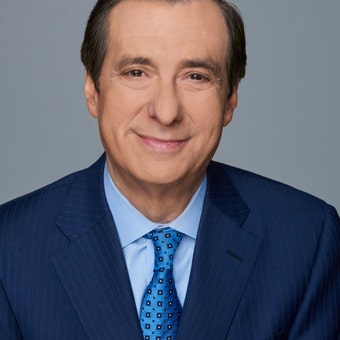Biden camp rips Trump coverage while bringing top journalists to Wilmington HQ
Fox News' Jacqui Heinrich joins 'MediaBuzz' to discuss.
It comes as no big surprise, but just 40 minutes after the Iowa caucuses began, former President Trump was declared the winner.
The projection was made by Fox, CNN, MSNBC and The Associated Press – with just 1% of the actual vote in.
Trump finished with a landslide victory, pulling in 51% of the vote. Ron DeSantis scored a crucial second-place finish over Nikki Haley, 21.2% to 19.1%, reviving the governor’s campaign for the moment, since he had basically put all his chips on Iowa and visited every county. Yet, just over 2,000 votes separated them, with 99% of precincts reporting.
Oh, and Vivek Ramaswamy dropped out and – big shocker – endorsed Trump.
HUNTER CRASHES HEARING, AUSTIN HID PROSTATE CANCER, BOTH HURTING THE PRESIDENT
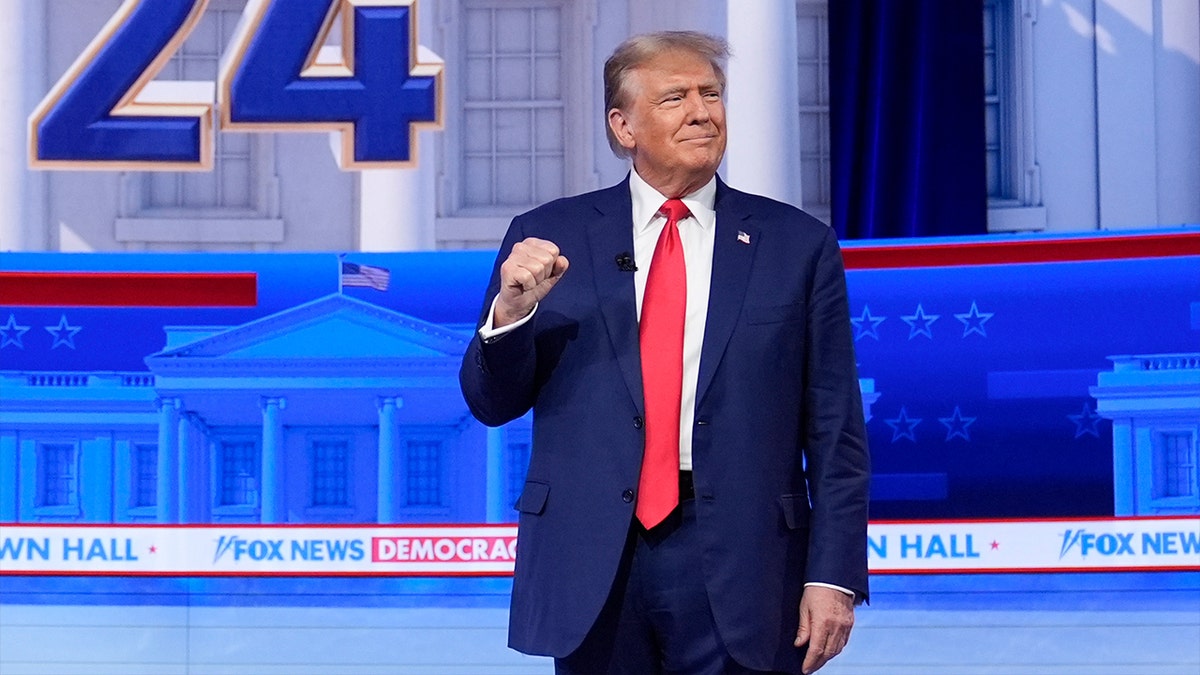
Republican presidential candidate and former President Trump participates in a Fox News Town Hall on Jan. 10, 2024, in Des Moines, Iowa.
Turnout nosedived to just under 120,000, undoubtedly depressed by the extreme cold and snow. In a state of 3.1 million, that underscores how few voters actually decided the much-ballyhooed, endlessly hyped caucuses.
Trump’s overwhelming victory prompted this lead story in today’s New York Times, "The Most Durable Force in American Politics: Trump’s Ties to His Voters."
Trump had a massive lead in virtually all Iowa polls. There was no way he was not going to win. The only question was the margin, with the Trump camp trying to lower expectations in the final days. It turns out that was not necessary.
TRUMP PROJECTED TO WIN IOWA, HALEY AND DESANTIS BATTLING FOR SECOND
That is why the former president abruptly turned on his biggest booster, Ramaswamy, and started buying ads on MSNBC attacking Haley.
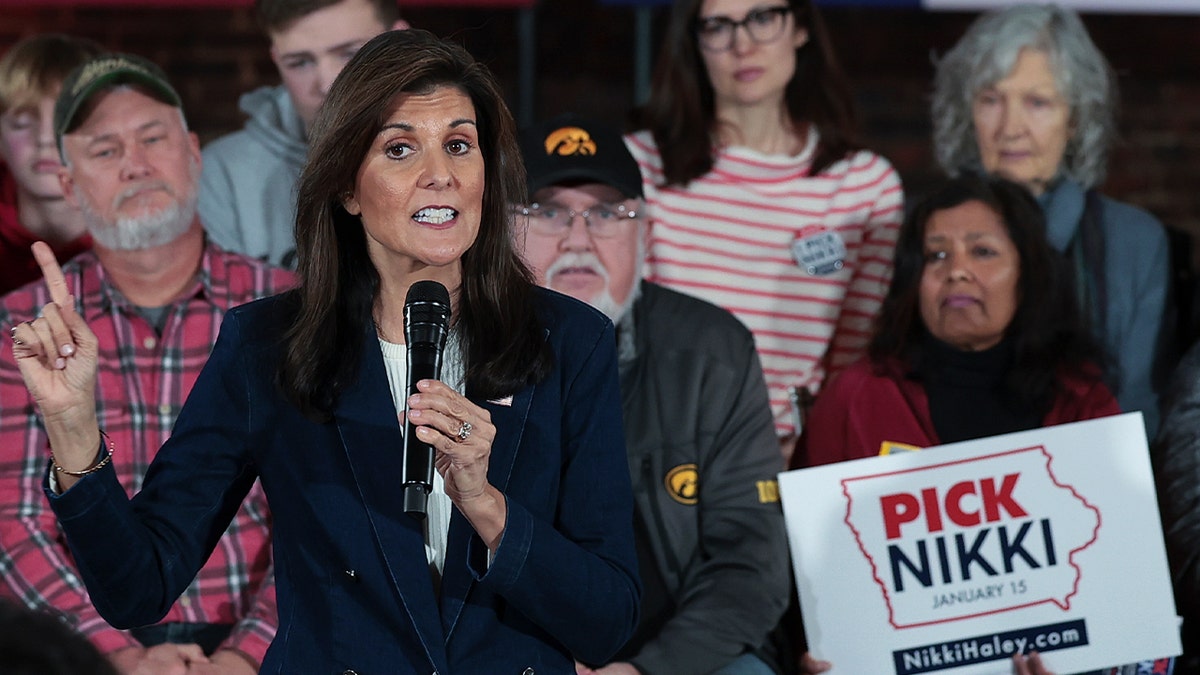
Republican presidential candidate Nikki Haley speaks during a campaign event at the Olympic Theater on Jan. 11 in Cedar Rapids, Iowa. (Win McNamee/Getty Images)
Additionally, Iowa, with its big evangelical population, was not a natural fit for Haley. She is trailing Trump by only single digits in New Hampshire, where Democrats and independents could cross over and vote for her. New Hampshire, which is culturally more libertarian, loves to go in the opposite direction of Iowa.
The media threw in the towel a couple of weeks ago, declaring as a fact, not just "likely," that Trump was going to win and win big.
Trump has an iron-clad lock on his MAGA supporters, which is why a big victory was never really in doubt. Additionally, two-thirds of caucusgoers said in entrance polls that Trump is still fit for the presidency, even if he is convicted of a criminal offense.
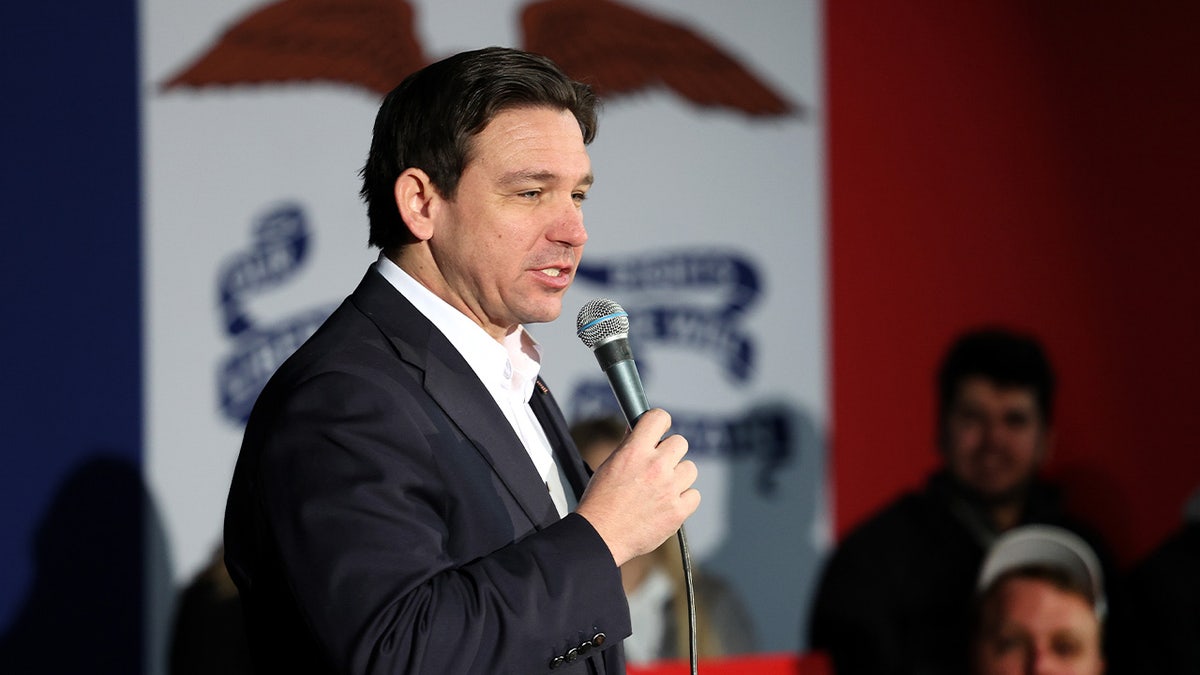
Republican presidential candidate Florida Gov. Ron DeSantis speaks at a campaign event at The Grass Wagon on Jan. 13, 2024, in Council Bluffs, Iowa. (Kevin Dietsch/Getty Images)
Those polls showed that two-thirds of caucusgoers believe that President Biden did not win in 2020 – fully embracing Trump’s "rigged election" narrative. That is remarkable as well as untrue.
Still, with just 40 delegates at stake, the Iowa caucuses would be a blip in the campaign ocean without the media.
It is a small, rural, unrepresentative state that would matter little if it did not host the first contest – and if the winner was not the recipient of a blizzard of laudatory press coverage (sorry) touting a surge of momentum.
BIDEN CAMP RIPS TRUMP COVERAGE WHILE BRINGING TOP JOURNALISTS TO WILMINGTON HQ
So, without the media having decided that Iowa is of the utmost importance – and the same for the following week’s New Hampshire primary – both would be negligible. The bigger, more diverse states like South Carolina – third for the Republicans, first for the Democrats – would matter far, far more because they have a bigger delegate haul.
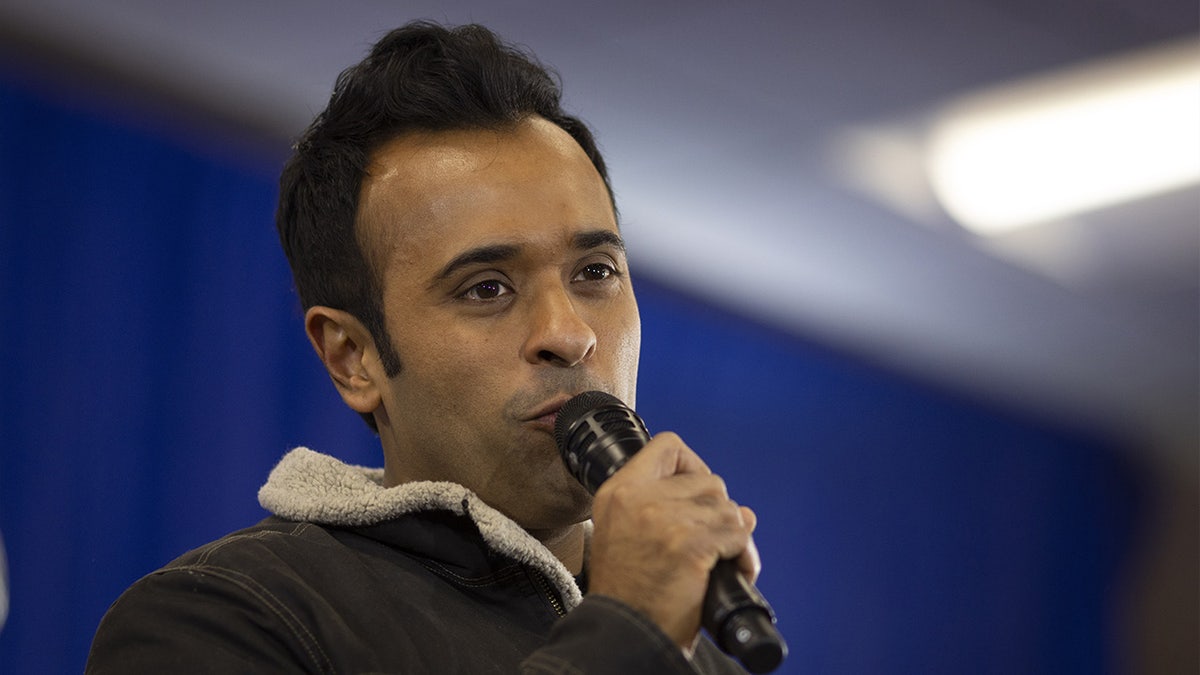
Vivek Ramaswamy, chairman and co-founder of Strive Asset Management and 2024 Republican presidential candidate, speaks during a campaign event in Des Moines, Iowa, on Wednesday, Jan. 3, 2024. (Christian Monterrosa/Bloomberg via Getty Images)
Once little-known, one-term Governor Jimmy Carter won Iowa, and the presidency in 1976, the press and a passel of candidates started camping out there to see who else could pull that off.
New Hampshire has a much better track record in picking GOP nominees than Iowa. George H.W. Bush in 1980, Bob Dole in 1988, Mike Huckabee in 2008, Rick Santorum in 2012 and Ted Cruz in 2016 all won Iowa but fell short. As NBC’s Steve Kornacki pointed out, the only two who became the party’s standard-bearer already had 30-plus leads: Bob Dole in 1996 and George W. Bush in 2000.
TRUMP’S FOX TOWN HALL TOPS CNN’S HALEY-DESANTIS DEBATE
On the Democratic side, Barack Obama could not have become president without winning Iowa (even though Hillary won New Hampshire the following week). However, Democrats have given up on the caucuses since Iowa’s unbelievable screwup four years ago, when it could not pronounce a winner for days, depriving Pete Buttigieg of a media bump when he won a razor-thin victory.
The caucuses are just too damn complicated, requiring participants to show up at 7 p.m. on a wintry night for three hours of speechifying and voting.
The argument for Iowa and New Hampshire, as one who has covered them since the ’90s, is that it gives candidates without much money or name recognition or establishment backing a chance to outwork better-known rivals through retail politics and get in the game. The voters in both states are incredibly dedicated and knowledgeable, and now, speak in perfect sound bites to reporters who grab them.
CLICK HERE TO GET THE FOX NEWS APP
However, Trump did the least in-person campaigning, yet finished with a 30-point margin. There are always exceptions in politics, and Trump has the ability to defy gravity.








































